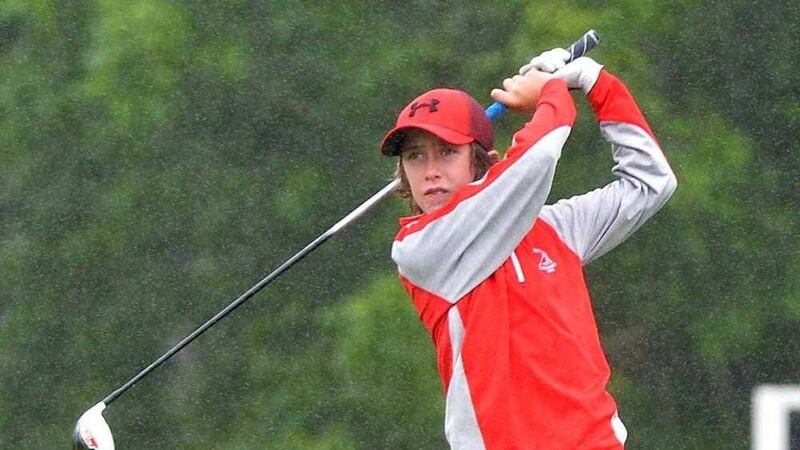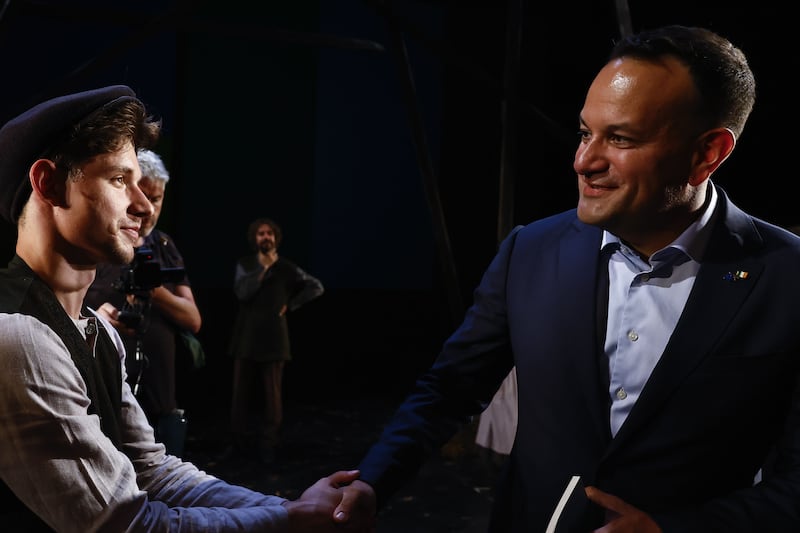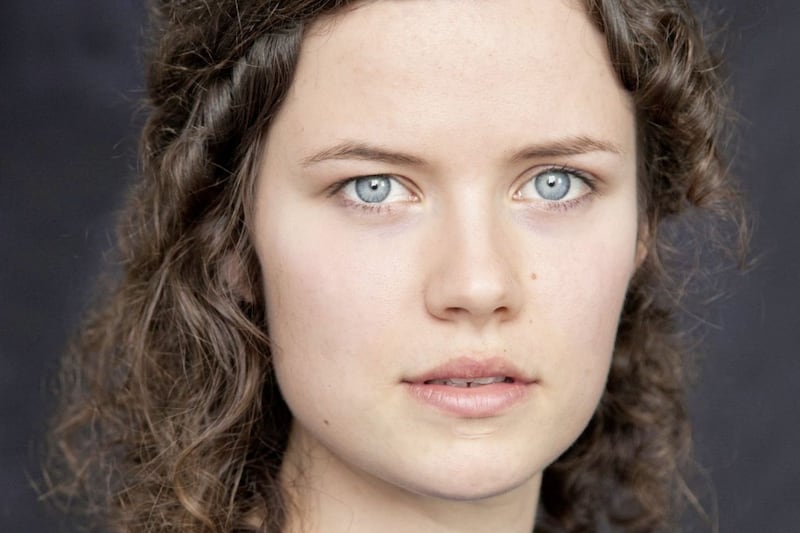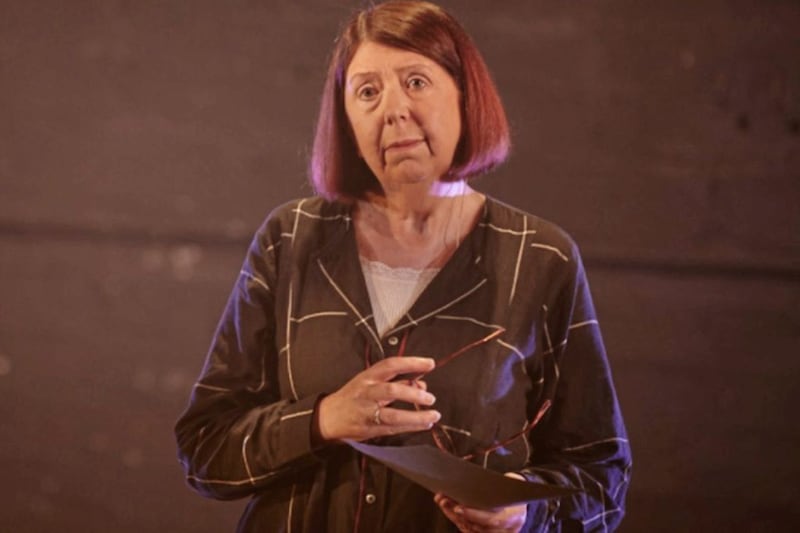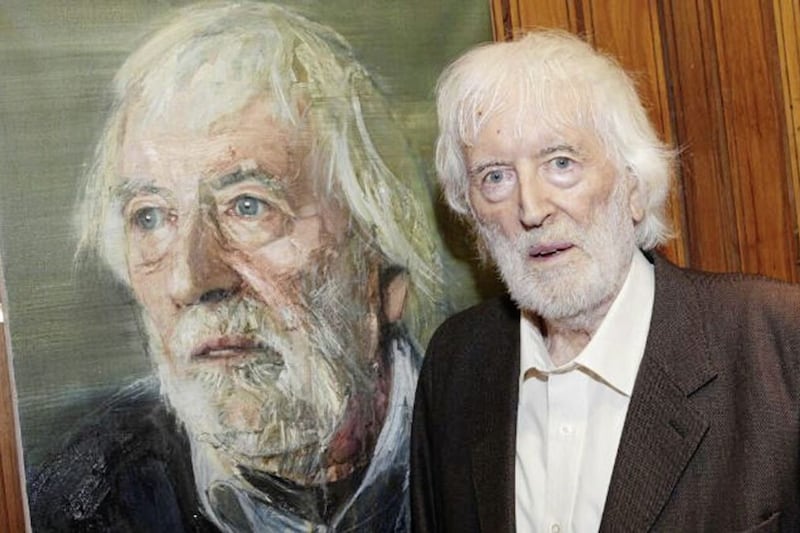CONGRATULATIONS to 13-year-old Tom McKibbin, Belfast Royal Academy schoolboy with a huge future. Already being mentored by Rory McIlroy, this young golfer has a six handicap and an Under-12 World Championship title.
BRA has provided sport with many stars (not me, sadly) and our most famous old boy, rugby player the late Jack Kyle, would have been proud of our latest. More power to your elbow, Tom. I like your attitude: “I’d like to be as good as Rory or better.”
GIRL POWER
Have you come across ‘mansplaining’, girls? Studies show that men dominate 75 per cent of decision-making conversation and women don't get much of a say. The male of the species tends to butt in, be dismissive, patronising – at home and at work. Sound familiar?
Now the recommendation is that you just look at that man who assumes he knows more about the subject than you do, gaze admiringly into his eyes and, with deep insincerity, say: “You’re so good at mansplaining,” or, to another female colleague, “Great example of mansplaining.” Quite disarming.
ENTERTAINING STORIES
Roland Jaquarello came from a theatrical family, his mother a respected pianist and his father an actor who appeared in films alongside stars like Stewart Granger, (who confided that he was only in show business for the women), Jean Simmons and Alex Guinness, so the young man was used to the Mayfair set of the late 50s.
He was taken backstage in theatres and on film lots, life was exciting and there was time to observe and learn. It was a great growing up so it was logical to step into a life of his own in theatre and eventually broadcasting.
When he didn’t get the required grades for university in Durham, he heard that Magee University College could lead him to Trinity College Dublin and a world of literature and theatre. Although civil unrest was simmering, Magee was an eye-opener for the tall Englishman who at the time was still able to move between Derry and Donegal with ease, enjoy parties in the Bogside, be arrested for jaywalking – but there was also the introduction to The Troubles.
Magee provided the beginnings of becoming a director and Trinity confirmed this through directing with the Trinity Players and his professional career was established with Theatre 1966.
In his book Memories of Development, Roland charts his course through turbulent years at the Abbey Theatre, returning to London to establish Green Fields and Far Away, a touring company that concentrated on Irish playwrights and involved many of the actor friends he had made in Ireland.
But the income didn’t cover the costs and the energetic company had to close its door in 1981.
“I felt I’d failed to establishing an Irish company permanently in the UK and of handling it on to the next generation.”
But Green Fields made it’s mark both in entertaining the public and giving employment to many actors.
“We may not have got an Oscar but the Irish Post’s award in 1981 for our work for the Irish community means more to me than Holywood glitz.”
So it was time to move on and an invitation to join the Lyric Theatre as artistic director brought him back to Belfast. I love his description of the founder of the theatre, Mary O’Malley, who he says ruled like a powerful potentate.
“She was a Catholic and a nationalist who had an obsession for the plays of Yeats who was called ‘Hail Mary Full of Yeats’. One production involved a revolve which was grand with Mary until she discovered it needed a motor but that required money so she insisted it would be pulled round manually by the stage crew.”
In 1977 he directed The Rise and Fall of Barney Kerrigan with an illustrious young cast: Stella McCusker, Des McAleer, Louis Rolston and newcomer, Liam Neeson.
“Although inexperienced, the Sunday News review spoke of his outstanding acting so it was somewhat prophetic that the opening music of the show was David Essex’s Gonna Be a Star!”
Reading about our local theatre and the actors Roland worked with is a great insight into those years when it was a struggle to survive – always the case, as he points out. The names conjure up memories – Michael Gormley, Sheila McGibbon, Birdy Sweeney, John Hewitt, Mark Mulholland all step out of the shadows to take a bow – and throughout the book are photographs of productions, black and white visions of a time past.
It makes this a valuable record of those days when entertainment brought some normality to the frighting years of violence and uncertainty as well as more recent productions and our best known actors of today.
But eventually Roland had to find new pastures and joined BBC Northern Ireland in the radio drama department where he developed the talents of writers like Marie Jones and Gary Mitchell and produced both plays and documentaries.
With his work in major Irish theatres and broadcasting organisations both north and south, he has combined the two disciplines, stage and studio, to provide a fascinating life story full of highlights which he records with humour and detail in his book.
More at www.theliffeypress.com
DOUBLE TAKE
I am yet again caught up on an American TV drama, this time The Good Wife. This everyday story of lawyers and their clients is not quite The West Wing but compelling nonetheless.
But what’s this, a familiar face? The sly, scheming Glenn Childs is played by Titus Welliver – or is it a slightly older, sun-kissed James Nesbitt?

